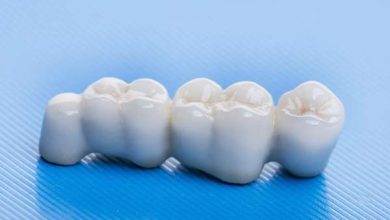Can Antibiotics Cause Tooth Decay? : Discover the shocking truth

Yes, antibiotics can cause tooth decay due to their ability to disrupt the balance of bacteria in the mouth. Tooth decay is a common dental issue that affects many individuals.
While poor oral hygiene and sugary diets are often the primary culprits, the use of antibiotics can also contribute to this problem. Antibiotics work by killing harmful bacteria in the body, but they can also unintentionally eliminate beneficial bacteria in the mouth.
These beneficial bacteria play a crucial role in maintaining good oral health. When the balance of oral bacteria is disrupted, harmful bacteria can thrive, leading to tooth decay and other dental issues. Therefore, it is important to be aware of the potential impact of antibiotics on oral health and to practice thorough oral hygiene to counteract any negative effects.
Understanding The Influence Of Medications On Dental Health
The impact of antibiotics on dental health is a topic that deserves attention. Antibiotics can have a direct effect on the health of our teeth and gums, especially in relation to tooth decay. One way in which antibiotics can contribute to tooth decay is by affecting the composition of saliva. Saliva plays a crucial role in oral health as it helps to wash away food debris and neutralize acids produced by bacteria. However, certain antibiotics can alter the pH balance of saliva, creating a more acidic environment which promotes the growth of harmful bacteria.
Furthermore, antibiotics may have interactions with oral bacteria that can lead to dental problems. Antibiotics can kill off both the harmful bacteria that cause infections and the beneficial bacteria that help maintain a healthy balance in our mouths. This disturbance can disrupt the microbial ecosystem and result in an overgrowth of harmful bacteria, increasing the risk of tooth decay.
Essential Dental Care Tips During Medication Use
During the use of antibiotics, it is important to maintain regular oral hygiene in order to prevent tooth decay. Antibiotics can sometimes disrupt the balance of bacteria in the mouth, leading to an increased risk of cavities. To minimize this risk, it is essential to brush your teeth twice a day with a fluoride toothpaste and floss daily. Additionally, incorporating good dietary practices can further support dental health. Limiting the consumption of sugary foods and drinks can help prevent the growth of bacteria that cause tooth decay. Instead, opt for a diet rich in fruits, vegetables, and dairy products as they provide essential nutrients that support healthy teeth and gums. By following these dental care tips, you can help protect your teeth and maintain good oral health while taking antibiotics.
Consulting With A Dentist For Antibiotic-related Dental Concerns
Signs Of Tooth Decay
|
Treatment OptionsIf you’re concerned about antibiotic-related tooth decay, it’s essential to consult with a dentist. They can assess your dental health and provide appropriate treatment options. Preventing tooth decay through proper oral hygiene practices, such as brushing twice daily, flossing, and regular dental check-ups, is crucial. In some cases, your dentist may recommend fluoride treatments or dental sealants to strengthen and protect your teeth. Restorative procedures, such as fillings or crowns, can be recommended to address the tooth decay. Rapidly progressing decay may require root canal therapy or tooth extraction. |

Credit: www.theguardian.com
Frequently Asked Questions For Can Antibiotics Cause Tooth Decay?
Can Antibiotics Cause Damage To Teeth?
Yes, certain antibiotics can potentially cause damage to teeth. These medications may affect tooth enamel and cause discoloration or weaken the structure of teeth. It is important to consult with a dentist or healthcare professional regarding potential side effects before taking antibiotics.
What Medication Can Cause Tooth Decay?
Certain medications can cause tooth decay. Medications like antihistamines, decongestants, and antacids containing sugar can contribute to tooth decay when taken over a long period. Other medication that can cause tooth decay are some cough syrups, antidepressants, and drugs used to treat high blood pressure.
Can Amoxicillin Affect Your Teeth?
Amoxicillin can potentially affect teeth by causing tooth staining, especially in children.
Can Antibiotics Affect Gums?
Yes, antibiotics can affect gums. Certain antibiotics like tetracycline can cause discoloration, while others can disrupt the balance of bacteria in the mouth, leading to gum problems. It’s important to use antibiotics as prescribed and maintain good oral hygiene to prevent gum issues.
Conclusion
While antibiotics are effective in fighting bacterial infections, they can also have unintended detrimental effects on our oral health. Tooth decay is possible due to the disruption of the natural balance of bacteria in our mouths. Therefore, it is important for both healthcare professionals and patients to be aware of these potential risks and take preventive measures to maintain optimal oral hygiene.
By staying informed and proactive, we can minimize the impact antibiotics may have on our dental health.



